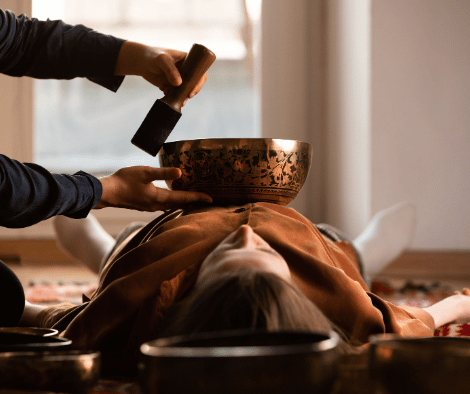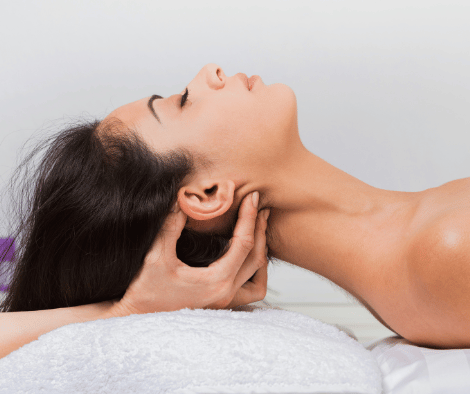Massage Therapy For Tinnitus
Tinnitus can be more than just an annoying ringing in your ears—it can disrupt sleep, increase stress, and even impact your overall well-being. For some, the constant buzzing, whooshing, or hissing sound feels inescapable. But what if relief was as simple as a hands-on approach? Massage therapy may offer a natural way to manage tinnitus symptoms, reduce muscle tension, and improve your quality of life.
What is Tinnitus?
Tinnitus, often described as a persistent ringing in the ears, affects millions of people worldwide. This condition isn’t just limited to ringing—it can also present as buzzing, humming, hissing, or even a whooshing sound. While tinnitus is commonly linked to exposure to loud noises, it can also result from a variety of underlying factors, making it a complex condition with multiple potential causes.
The auditory system, which includes the inner ear, auditory nerve, and brain, plays a critical role in processing sound. When the delicate hair cells in the inner ear sustain damage, the brain may compensate by generating phantom sounds. This disruption in nerve signals can lead to the perception of tinnitus.
For some, tinnitus is intermittent and mild. For others, it can be constant, debilitating, and disruptive to sleep, concentration, and overall well-being. Understanding the common causes and contributors to tinnitus is the first step in finding effective treatment strategies to help manage symptoms and promote relaxation.

Tinnitus can be categorized into two main types: subjective and objective. Subjective tinnitus is the most common form, where only the person experiencing it can hear the sounds. Objective tinnitus, on the other hand, is rare and can be heard by both the person with the ringing and a healthcare provider. It often occurs due to blood flow irregularities, muscle contractions, or structural issues in the ear.
The perception of tinnitus varies greatly among individuals, with some describing it as a minor annoyance and others finding it severely disruptive to their daily lives. The sounds may come and go, or they might persist over an extended period. This variability underscores the importance of understanding the underlying causes and available treatment options to manage tinnitus effectively and improve one’s quality of life.
What are the Causes of Tinnitus?
Tinnitus can emerge from a variety of factors, often interconnected in complex ways. Here are some of the most typical causes that contribute to its onset:
- Loud Noise Exposure – Exposure to excessively loud sounds, such as concerts, construction sites, or even loud music through headphones, can damage the sensitive hair cells in the inner ear. This damage can trigger the brain to generate phantom sounds, making it the most common cause of tinnitus.
- Age-Related Hearing Loss – As we age, the auditory system undergoes changes, including a gradual decline in the function of hair cells and the auditory nerve. This age-related hearing loss, known as presbycusis, is a common precursor to tinnitus.
- Stress and Anxiety – High stress levels and anxiety disorders can contribute to the development or exacerbation of tinnitus. The complex relationship between the nervous system, limbic system (responsible for emotions), and auditory system can amplify the perception of tinnitus in stressful situations.
- Medical Conditions – Certain health conditions, such as high blood pressure and cardiovascular issues, can impact blood flow to the ears and contribute to tinnitus. Additionally, disorders like Meniere’s disease, which affects the inner ear’s fluid balance, can lead to tinnitus and vertigo.
- Medications – Some medications, particularly those that are ototoxic (damaging to the ears), can result in tinnitus as a side effect. These can include certain antibiotics, diuretics, and nonsteroidal anti-inflammatory drugs (NSAIDs).
- Head and Neck Injuries – Trauma to the head or neck can disrupt the auditory system and lead to tinnitus. Even seemingly minor injuries can cause changes in blood flow and nerve function, resulting in phantom sounds.
- Sinus and Ear Infections – Infections in the sinuses or ears can create pressure imbalances that affect the auditory system, leading to temporary or chronic tinnitus.
- Blood Flow Irregularities – Abnormalities in blood vessels near the ear can generate turbulent blood flow that produces a rhythmic pulsing, known as pulsatile tinnitus.
- Certain Medical Treatments – Treatments like chemotherapy or radiation therapy, while crucial for treating other conditions, can sometimes damage the auditory system and trigger tinnitus.
- Emotional Stress – Emotional stress, whether from major life changes or ongoing stressors, can exacerbate symptoms. The stress response can heighten the perception of existing tinnitus.
Understanding these underlying causes is crucial for devising effective treatment strategies. Tinnitus is often a result of a combination of factors, and determining the specific triggers for each individual can aid in developing personalized approaches to manage and alleviate the condition.
Tinnitus Treatments
While there is no one-size-fits-all cure for tinnitus, various treatments can help manage symptoms and improve quality of life. The most effective approach depends on the underlying cause and individual needs. Here are some common treatment options:
1. Sound Therapy
Using external sounds can help distract from tinnitus and make it less noticeable. White noise machines, nature sounds, or tinnitus masking devices provide background noise that reduces the prominence of ringing, buzzing, or hissing.
2. Cognitive Behavioral Therapy (CBT)
CBT helps individuals reshape their thought patterns and emotional responses to tinnitus. This therapy is particularly effective in reducing distress and anxiety related to tinnitus, helping people regain a sense of control.
3. Relaxation Techniques
Since stress and anxiety can exacerbate tinnitus, relaxation methods such as deep breathing, meditation, and progressive muscle relaxation can help reduce its intensity. These techniques promote overall well-being and lessen the brain’s focus on tinnitus.
4. Hearing Aids
For individuals with hearing loss, hearing aids can amplify external sounds, making tinnitus less noticeable. This dual benefit improves overall hearing clarity while reducing the perception of phantom sounds.
5. Tinnitus Retraining Therapy (TRT)
TRT combines sound therapy with counseling to help individuals habituate to tinnitus. Over time, the brain learns to filter out the tinnitus sound, making it less intrusive.
6. Medications
While no specific medication cures tinnitus, certain drugs can help manage related symptoms. Antidepressants and anti-anxiety medications may reduce stress levels, while sleep aids can improve rest for those whose tinnitus disrupts sleep.
7. Cognitive Retraining
Engaging in activities that shift focus away from tinnitus can be beneficial. Hobbies, exercise, and social interactions serve as distractions, reducing the psychological burden of the condition.
8. Support Groups and Counseling
Talking with others who experience tinnitus can provide emotional support and valuable coping strategies. Professional counseling can also help individuals manage the frustration and anxiety that often accompany tinnitus.
9. Addressing Underlying Medical Conditions
If an underlying health issue causes tinnitus, treating that condition may provide relief. Managing high blood pressure, sinus infections, or TMJ dysfunction can alleviate symptoms. Consulting with an audiologist or an ENT specialist can help determine the best course of action.

Stress is a natural response to challenges, but it can significantly impact tinnitus when it becomes chronic. The relationship between stress and tinnitus often forms a vicious cycle, where stress amplifies the perception of tinnitus, and tinnitus, in turn, increases stress. Here’s how stress influences tinnitus severity and perception:
1. Stress Amplification
When the body experiences stress, it releases hormones that activate the “fight or flight” response. This engages the nervous system and the limbic system, both of which are closely linked to the auditory system. As stress levels rise, tinnitus can seem louder and more intrusive, making it harder to ignore.
2. Heightened Awareness and Cognitive Focus
Stress can increase hyperawareness of bodily sensations, including tinnitus. This heightened focus can make the ringing, buzzing, or hissing seem more intense, leading to greater distress. The more attention given to tinnitus, the more it can dominate thoughts and daily life.
3. Negative Impact on Quality of Life
Chronic tinnitus can be emotionally exhausting, leading to anxiety, frustration, and difficulty concentrating. Combined with ongoing stress, it can interfere with social interactions, work performance, and sleep, diminishing overall well-being.
4. Stress-Induced Tinnitus
For some, stress itself can be a direct trigger for tinnitus. In these cases, tinnitus develops or worsens during periods of heightened stress. This connection highlights the strong link between emotional health and auditory perception.
5. Tinnitus as an Anxiety Trigger
Conversely, tinnitus can act as an anxiety trigger. Worrying about its persistence or worsening can lead to increased stress and even panic attacks, further fueling the cycle.
Breaking the Stress-Tinnitus Cycle
Stress and tinnitus often feed off each other, creating a frustrating cycle that can feel impossible to escape. But the good news? Reducing stress may help dial down the intensity of tinnitus, making it easier to manage.
One of the most effective ways to break this cycle is through relaxation techniques. Mindfulness, meditation, and deep breathing exercises can help calm the nervous system, lowering heart rate and easing emotional distress. When the body is relaxed, the brain is less likely to fixate on tinnitus, making the ringing or buzzing seem less intrusive.
For some, professional support is key. Therapy, particularly Cognitive Behavioral Therapy (CBT), has been shown to help individuals reframe their thoughts about tinnitus. Working with a mental health professional can provide personalized strategies to manage stress, anxiety, and the emotional toll tinnitus can take.
Lifestyle choices also play a significant role. Regular exercise releases endorphins, the body’s natural stress relievers, while a nutrient-rich diet supports brain and nervous system function. Sleep is just as important—poor rest can heighten stress levels and make tinnitus feel even more overwhelming.
Taking control of stress doesn’t mean tinnitus will disappear entirely, but it can make a huge difference in how it’s perceived. By combining relaxation techniques, healthy habits, and, if needed, professional support, many people find relief and regain a sense of balance in their daily lives.
The Potential of Regular Massage in Managing Tinnitus Severity
There’s no definitive cure for tinnitus, but that doesn’t mean relief is out of reach. Exploring complementary therapies like massage can offer a natural way to ease symptoms and improve overall well-being. Known for its ability to promote relaxation and release tension, regular massage might also help manage the severity of tinnitus.
The Link Between Stress and Tinnitus
Stress and tinnitus are deeply connected. When stress levels rise, the nervous system, limbic system (which regulates emotions), and auditory system become overstimulated. This heightened state can amplify the ringing, buzzing, or hissing sounds that characterize tinnitus. The more stress a person feels, the more noticeable tinnitus becomes. It’s a frustrating cycle.
Massage may help break that cycle.
How Massage Reduces Stress
One of massage’s greatest benefits is its ability to calm the nervous system. It encourages the release of endorphins, the body’s natural mood boosters, while simultaneously lowering cortisol, a hormone closely tied to stress. Since stress often exacerbates tinnitus, regular massage may help lower its perceived intensity by keeping the body and mind in a more relaxed state.
The Mind-Body Connection in Tinnitus Relief
Tinnitus isn’t just a physical condition—it’s deeply tied to perception. The more a person focuses on the ringing, the more bothersome it becomes.
Massage helps in two ways. First, it provides a physical release of muscle tension, particularly in the neck and jaw, which can contribute to tinnitus. Second, it fosters mental relaxation, creating a sense of ease that makes tinnitus seem less overwhelming. The ability to shift attention away from the ringing, even temporarily, can make a significant difference in how it’s experienced.
A Personalized Approach to Tinnitus Management
Massage isn’t a cure, and it may not work for everyone. That’s why it’s important to take a multifaceted approach to tinnitus management. Stress reduction techniques, lifestyle changes, and targeted therapies—such as cognitive behavioral therapy (CBT) or sound therapy—can all play a role in improving symptoms.
Before incorporating massage into a tinnitus treatment plan, it is recommended that you consult a healthcare professional. They can help determine whether massage is a safe and beneficial option, especially for individuals with underlying health conditions.
Integrating Massage into a Holistic Wellness Plan
When combined with other wellness practices, regular massage may be a powerful tool for reducing stress, improving circulation, and promoting relaxation. While it won’t eliminate tinnitus, it may help make life with tinnitus more manageable.
And sometimes, finding even a little relief can make all the difference.

Begin a Journey of Relief and Tranquility
Tinnitus can feel relentless, but managing stress may offer a path to relief. As we’ve explored, stress and tinnitus are deeply connected, and finding ways to relax can make a meaningful difference. While there’s no universal cure, taking control of your well-being through holistic therapies can be empowering.
If you’re looking for a natural way to ease stress and potentially reduce the intensity of tinnitus, massage therapy may be the answer. At Body Ache Escape Massage Center, our skilled therapists create a sanctuary of relaxation where your wellness takes priority. With expert techniques, a soothing atmosphere, and personalized care, we invite you to step away from the noise—both internal and external—and embrace tranquility.
Take the first step toward a calmer mind, reduced tension, and a possible reduction in tinnitus severity. Book a massage today and experience the benefits for yourself. Your journey to serenity starts here.
Call us at 614-604-6358 to schedule your appointment.



